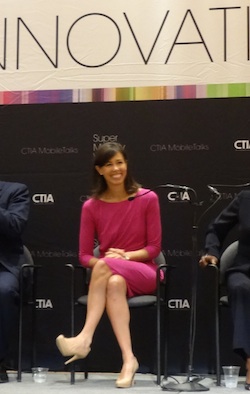Internet service providers are common carriers, beginning today
![By Sarah Connors (Blues vs Lightning-7473.jpg Uploaded by Carport) [CC BY 2.0 (https://creativecommons.org/licenses/by/2.0)], via Wikimedia Commons](https://www.tellusventure.com/images/2015/6/hockey_fight.jpg)
No blood, no foul, no stay.
The Federal Communications Commission’s common carrier rules for broadband infrastructure and service take effect today. Yesterday, a three-judge federal appellate court panel denied a request by telecoms companies to put the rules on hold while the appeals process moves forward. The judges didn’t give a specific reason, simply saying “petitioners have not satisfied the stringent requirements for a stay pending court review”.

![By National Park Service [Public domain], via Wikimedia Commons](https://www.tellusventure.com/images/2015/6/logjam.jpg)


![By Cpl Jody Lee Smith [Public domain], via Wikimedia Commons](https://www.tellusventure.com/images/2015/5/out_of_bounds.jpg)
![By Blamfoto (Flickr) [CC BY 2.0 (https://creativecommons.org/licenses/by/2.0)], via Wikimedia Commons](https://www.tellusventure.com/images/2015/5/great_plains.jpg)

![By Smuconlaw. (Own work.) [CC BY-SA 4.0 (https://creativecommons.org/licenses/by-sa/4.0)], via Wikimedia Commons](https://www.tellusventure.com/images/2015/5/light_touch.jpg)

